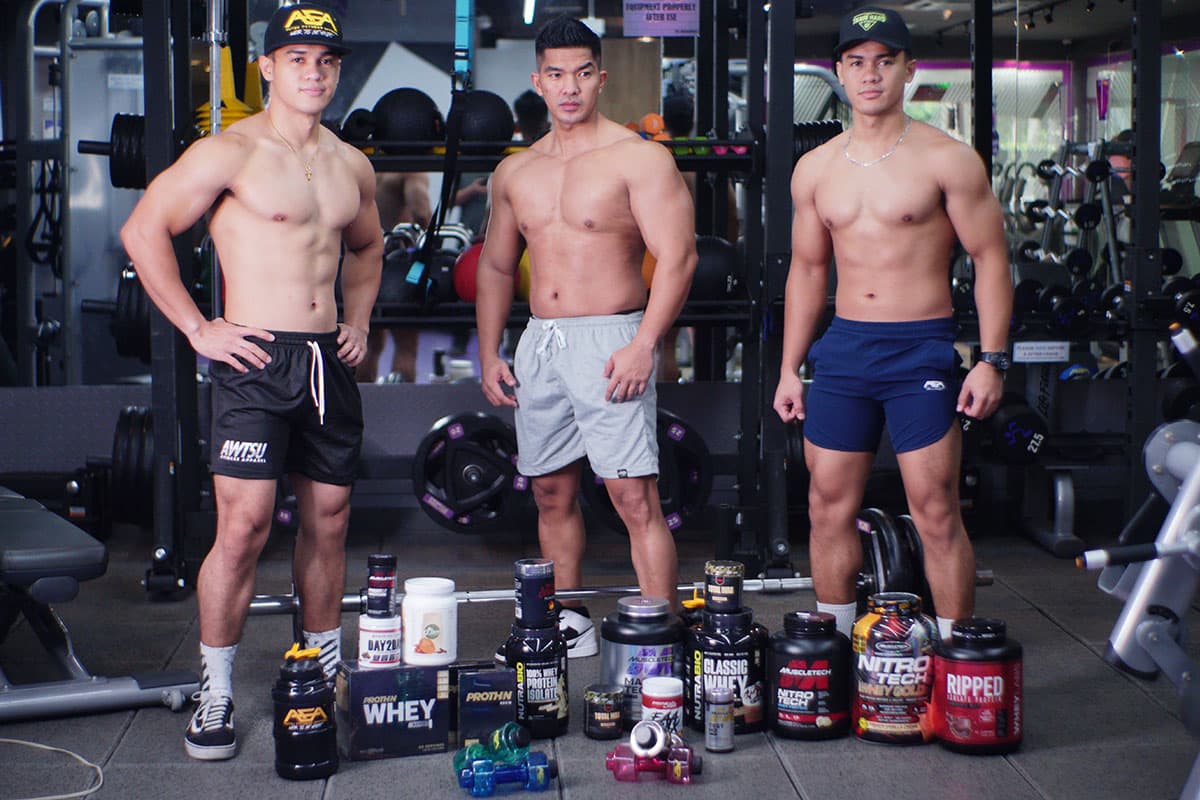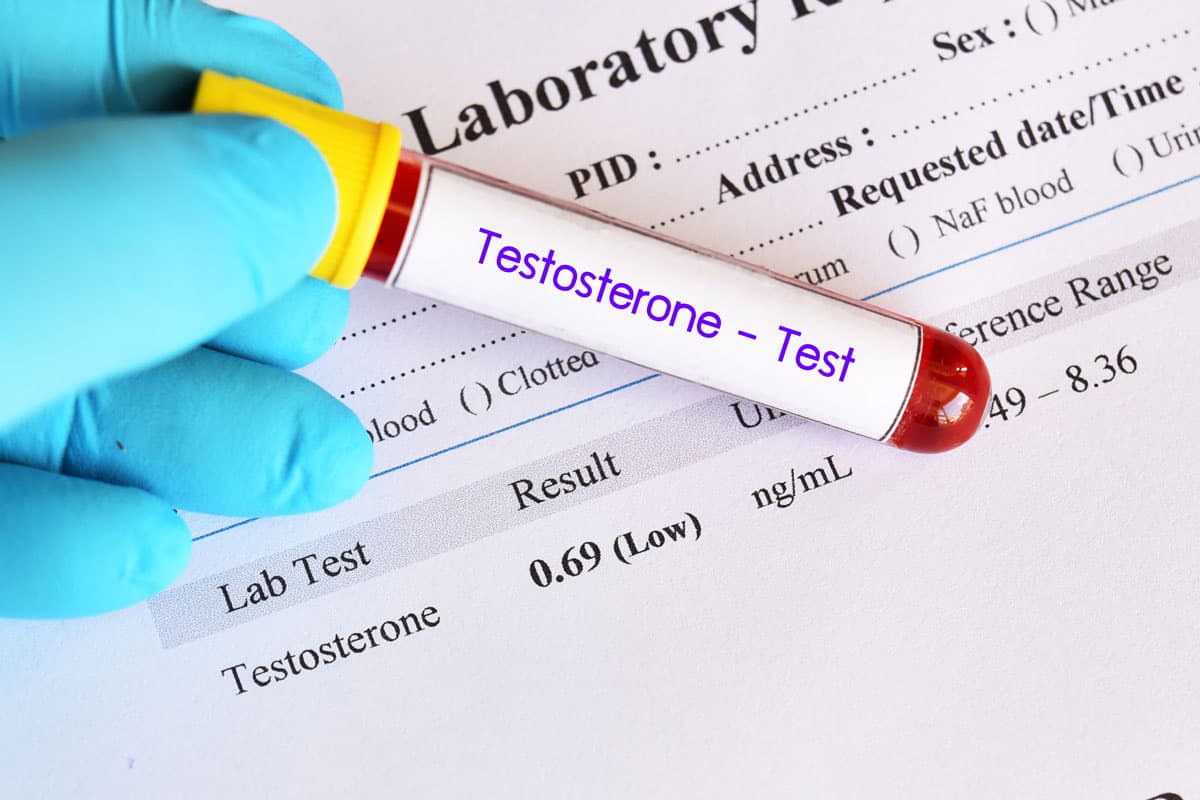When you're pursuing your bodybuilding goals, you've probably wondered if whey protein is an absolute must-have supplement. You'll find countless gym-goers religiously mixing their post-workout shakes.
But the truth about whey protein isn't as straightforward as supplement companies might lead you to believe. While this popular supplement offers certain advantages, successful muscle building doesn't hinge on powdered protein alone.
Understanding the real role of whey protein in bodybuilding can help you make informed decisions about your nutrition strategy. Potentially save you money while still achieving your desired results.
In this article, we will learn if whey protein is considered a compulsory supplement for bodybuilding.
Understanding Whey Protein Basics
Whey protein stands as one of the most effective supplements for muscle building. Derived as a byproduct during cheese production.
When you're looking to boost your muscle gains. Understanding whey protein supplementation becomes essential for making informed decisions about your nutrition strategy.
You'll find three main types of whey protein on the market: concentrate, isolate, and hydrolysate. Whey protein isolate offers the purest form, containing over 90% protein with minimal fats and lactose.
Each type provides a complete amino acid profile, particularly rich in leucine, which plays a significant role in muscle protein synthesis. What makes whey protein particularly effective is its rapid absorption rate.
Your body can quickly digest and utilize this quality protein, making it ideal for post-workout recovery. The amino acid composition closely matches human muscle protein, supporting efficient muscle repair and growth.
While you can certainly build muscle without supplements. Consuming whey protein offers a convenient, scientifically proven way to meet your daily protein requirements.
It's especially useful when you're struggling to consume enough protein through whole foods alone. Providing about 20-25 grams of protein per serving.
Natural Protein Sources

Beyond supplements, natural protein sources form the foundation of any successful muscle-building diet. While supplements include whey protein as a convenient option, conventional food sources provide complete nutrition that's essential for ideal muscle growth.
You'll find high-quality protein in lean meats, fish, eggs, and dairy products, which deliver all the essential amino acids your body needs. Chicken breast offers about 31 grams of protein per 100 grams, while eggs pack 6 grams each.
Greek yogurt provides 10 grams per 100 grams, and salmon delivers 25 grams along with healthy fats. These whole foods also contain additional nutrients like B vitamins, iron, and zinc that support overall health and recovery.
You can easily meet your protein requirements through natural sources by planning your meals strategically. For a 180-pound bodybuilder requiring 180 grams of protein daily, you might eat eggs for breakfast, chicken breast at lunch, and fish for dinner, with Greek yogurt and cottage cheese as snacks.
This approach guarantees steady protein intake throughout the day while providing diverse nutrients that supplement alone can't match.
Muscle Growth Without Supplements
Many bodybuilders wonder if they can build impressive muscle mass without depending on supplements. The answer is yes - you can achieve significant muscle growth through proper nutrition and training alone.
While supplements aren't regulated by the Food and Drug Administration as strictly as medications. Eating whole foods provides all the nutrients you need for muscle development.
You'll want to focus on consuming lean proteins, complex carbohydrates, and healthy fats throughout your diet. This approach not only supports muscle growth but also promotes overall health without the potential side effects that some supplements may cause.
If you have existing health conditions, it's especially important to rely on natural nutrition rather than supplements.
To build muscle naturally, you'll need to eat in a slight caloric surplus while maintaining a protein intake of about 1.6-2.2g per kilogram of body weight. This doesn't mean you'll experience unwanted weight loss or gain.
Proper portion control and timing of meals will help you achieve your goals. Remember that consistency in your diet and training program matters more than any supplement regimen.
Your body can effectively build muscle using the amino acids and nutrients from whole food sources.
Whey Protein Benefits
When you're looking to supplement your nutrition for muscle gains, few options match the extensive research backing of whey protein. A 2019 study showed that whey protein helps build and maintain lean muscle mass while supporting before or post-workout recovery.
Unlike other supplements like fish oil or folic acid, whey protein directly contributes to muscle protein synthesis. You'll find that whey protein offers benefits beyond muscle building.
Research indicates that a higher protein diet can help you lose weight by increasing satiety and boosting your metabolism. It's also been linked to reducing blood pressure and improving your body's immune response.
The amino acid profile of whey, particularly its high leucine content, makes it superior to many other protein sources for muscle development. For ideal results, you'll want to consume 20-30 grams of whey protein within 30 minutes after your workout.
You can also take it between meals to meet your daily protein requirements, especially if you're struggling to get enough protein from whole foods. Remember that while whey protein is effective, it works best as part of a balanced diet and consistent training program.
Common Misconceptions About Supplements
Debunking supplement myths can help you make smarter choices about your fitness journey. One common misconception is that you'll need supplements to build muscle.
While supplements can help, they're not essential. Proper nutrition and training are the real foundations of muscle growth.
You might've heard that taking protein powder will make you bulky, especially if you're a woman. That's false. Your body composition changes depend on your overall calories, training program, and hormones, not just protein intake.
Another myth is that protein supplements are harmful to your kidneys. Research shows that healthy individuals can safely consume recommended protein amounts without kidney damage.
Don't fall for the "more is better" trap. Taking excessive amounts of supplements won't speed up your progress and might waste your money.
You'll also find claims that certain supplements can replace proper nutrition. They can't, supplements should complement, not replace, whole foods.
Finally, there's a misconception that all supplements are created equal. Quality matters, so you'll want to choose products from reputable manufacturers that undergo third-party testing.
Alternative Protein Sources
While whey protein remains popular among bodybuilders, you don't need to rely on it exclusively for your protein needs. Nature offers numerous high-quality protein sources that can effectively support muscle growth and recovery.
Lean meats like chicken breast, turkey, and lean beef provide complete proteins with all essential amino acids. You'll get about 25-30 grams of protein per 100-gram serving.
Fish, especially salmon and tuna, offers both protein and beneficial omega-3 fatty acids. Plant-based options include lentils, quinoa, and chickpeas, which provide 15-18 grams of protein per cup when cooked.
Eggs remain a bodybuilding staple, delivering about 6 grams of protein per egg along with important nutrients like choline. Greek yogurt packs 15-20 grams of protein per cup, making it an excellent dairy-based alternative.
If you're vegetarian or vegan, try combining rice and beans or adding tempeh to your meals. These combinations create complete protein profiles.
Soy products like tofu contain around 20 grams of protein per cup and work well in various recipes. You'll find that mixing these protein sources throughout your day can easily meet your bodybuilding requirements without supplements.
Cost Analysis
The financial impact of whey protein supplementation deserves careful consideration before committing to regular purchases. When you break down the cost per serving, whey protein typically ranges from ₱27 to ₱120, depending on the brand and quality.
You'll need to factor in that a regular bodybuilding regimen often requires 1-2 scoops daily, which can amount to ₱810-₱7200 per month.
Comparing this to whole food protein sources, you'll find that eggs, chicken breast, and canned tuna can provide similar protein content at a lower cost. For instance, a dozen eggs cost around ₱128 and provide about 72 grams of protein, while lean chicken breast averages ₱170 per 500 grams, delivering roughly 155 grams of protein.
However, you shouldn't only consider the peso amount. Factor in preparation time, convenience, and shelf life.
Whey protein's instant mixing and long shelf life might justify its higher cost if you're frequently on the go. You'll also want to calculate the cost per gram of protein rather than the cost per serving to make a fair comparison between supplements and whole foods.
Real Athletes' Success Stories
Moving beyond cost considerations, real-world examples showcase how whey protein has helped athletes achieve their goals. You'll find that professional bodybuilders like Jay Cutler have consistently credited whey protein as an essential component of his success.
@jaycutler Can you consume protein powder as your main source of protein? #nutrition ♬ Nourish The Soul - Deep Mix - DJ Taz Rashid & Momentology
Cutler, a 4-time Mr. Olympia winner, reports consuming 40-50g of whey protein post-workout throughout his career. These real-world success stories, backed by scientific data, demonstrate whey protein's practical benefits in bodybuilding.
Scientific Research Findings
Scientific studies consistently validate whey protein's effectiveness for muscle growth and recovery. Research from the Department of Sport Science and Physical Education in the U.K. shows that whey protein stimulates muscle protein synthesis more effectively than other protein sources, leading to enhanced muscle growth when combined with resistance training.
You'll find compelling evidence in a 2018 meta-analysis published in the British Journal of Sports Medicine, which examined 49 studies involving over 1,800 participants. The results demonstrated that whey protein supplementation, combined with resistance training, increased lean muscle mass by an average of 2.5 pounds more than placebo groups over 6-12 weeks.
The International Society of Sports Nutrition's position study confirms that you need 1.6-2.2 grams of protein per kilogram of body weight daily to optimize muscle growth. While you can achieve this through whole foods, whey protein's rapid absorption rate and complete amino acid profile make it particularly effective post-workout.
Studies show it peaks in your bloodstream within 40-60 minutes, providing your muscles with essential nutrients when they're most receptive to growth and repair.
Making The Right Choice

Several key factors should guide your selection of whey protein supplements, as not all products deliver the same quality or results.
First, check the protein content per serving, you'll want at least 20-25 grams of protein with minimal filler ingredients. Look for products that list whey protein isolate or concentrate as their primary ingredient.
Pay attention to third-party testing certifications, such as NSF or Informed Choice, which verify the product's purity and accuracy of labeling. You don't want to risk consuming banned substances or contaminated products.
The amino acid profile matters too, make certain your supplement contains all essential amino acids. Particularly leucine, which is vital for muscle protein synthesis.
Consider your dietary restrictions and digestion needs. If you're lactose intolerant, opt for whey isolate over concentrate.
Your budget will also play a role but don't compromise quality for cost. Compare the price per serving rather than the package size.
Remember to check reviews from verified buyers and avoid products with artificial sweeteners if you're sensitive to them. Ultimately, choose a supplement that aligns with your fitness goals and dietary preferences while maintaining high-quality standards.
Frequently Asked Questions
Can Whey Protein Cause Kidney Stones or Damage in Healthy Individuals?
You don't need to worry about kidney problems from whey protein if you're healthy. Research shows it's safe at normal doses, though you'll want to stay hydrated and follow recommended serving sizes.
Does the Timing of Whey Protein Consumption Affect Sleep Quality?
You won't have sleep issues from whey protein timing, but it's smart to avoid large amounts right before bed as digestion might cause mild discomfort for some people.
Why Does Whey Protein Sometimes Cause Excessive Gas and Bloating?
You'll experience gas and bloating from whey protein if you're lactose intolerant, consuming it too quickly, or mixing it with air while shaking. Your gut bacteria's adjustment period also causes these issues.
Can Pregnant Women Safely Consume Whey Protein Supplements?
You can safely take whey protein while pregnant, but consult your doctor first. It's helpful for meeting increased protein needs, though you'll want to choose high-quality brands without harmful additives.
Does Whey Protein Interact With Common Medications or Birth Control Pills?
You should consult your doctor about whey's interactions with medications. While it's generally safe, it can affect the absorption of some antibiotics and medications that require precise timing.
Conclusion
You don't need whey protein to build muscle effectively, it's just a convenient tool in your fitness journey. If you're getting enough protein from whole foods and following a solid training program, you'll see results.
While whey can help with recovery and muscle growth, what matters most is maintaining a balanced diet and consistent workout routine. Focus on the basics first, and consider supplements as optional additions to your nutrition plan.
Whey protein is a crucial dietary supplement for bodybuilding due to its high-quality protein, essential amino acids, and muscle-building capabilities. To achieve your fitness goals and unlock your full potential, incorporate high-quality whey protein into your daily routine.
Get affordable and premium whey protein supplements in Metro Manila with Awtsu Supplements. Your partner in reaching peak physical performance. Browse our collection today and discover a stronger you.
References
https://pmc.ncbi.nlm.nih.gov/articles/PMC6651693
https://pubmed.ncbi.nlm.nih.gov/25926512
https://pubmed.ncbi.nlm.nih.gov/27807480
https://www.dovepress.com/whey-protein-supplementation-and-muscle-mass-current-perspectives-peer-reviewed-fulltext-article-NDS
https://bjsm.bmj.com/content/52/6/376.abstract
https://pubmed.ncbi.nlm.nih.gov/28698222
https://pubmed.ncbi.nlm.nih.gov/20456814






Hi Team,
i am Ajay from Delhi India...